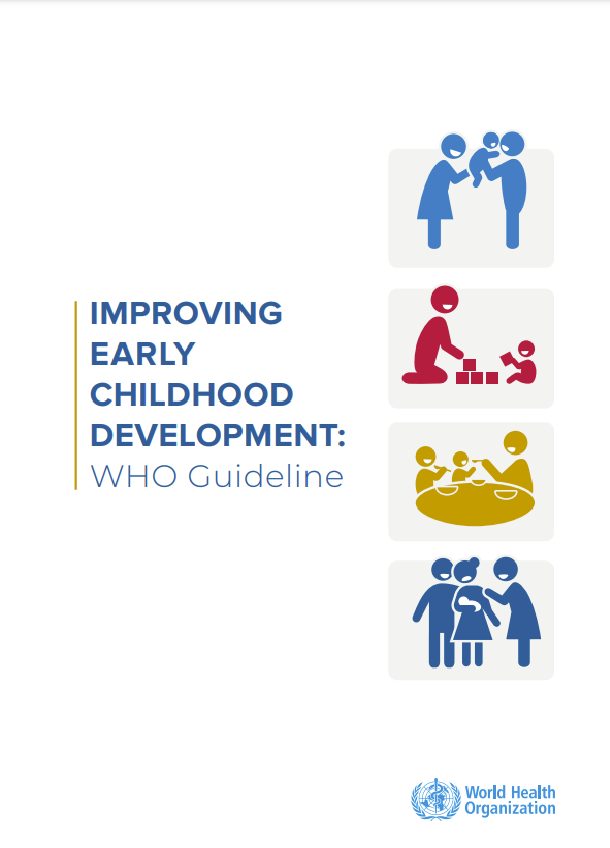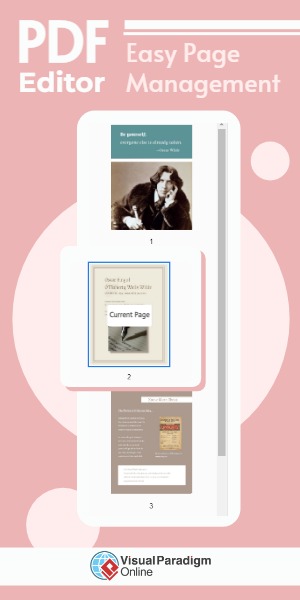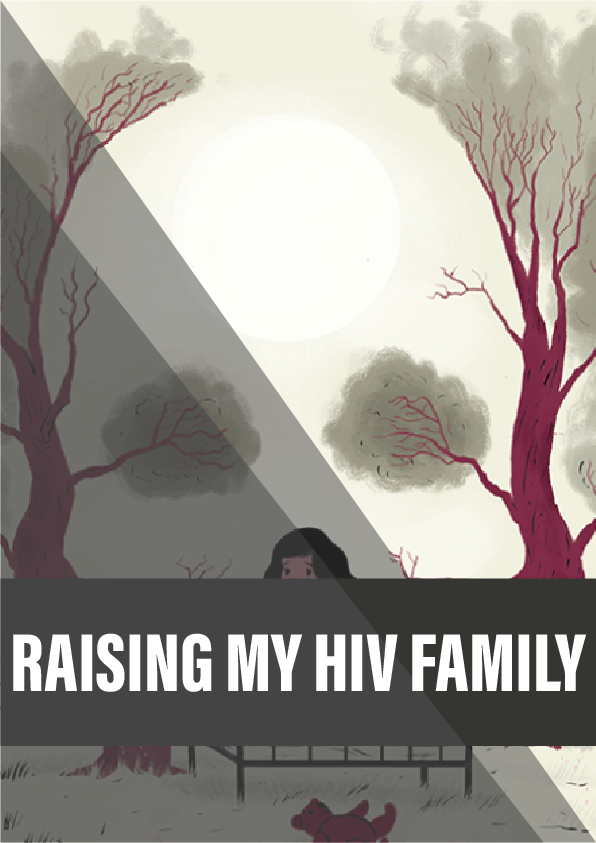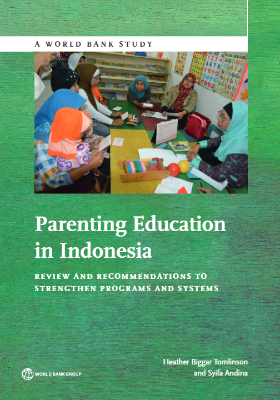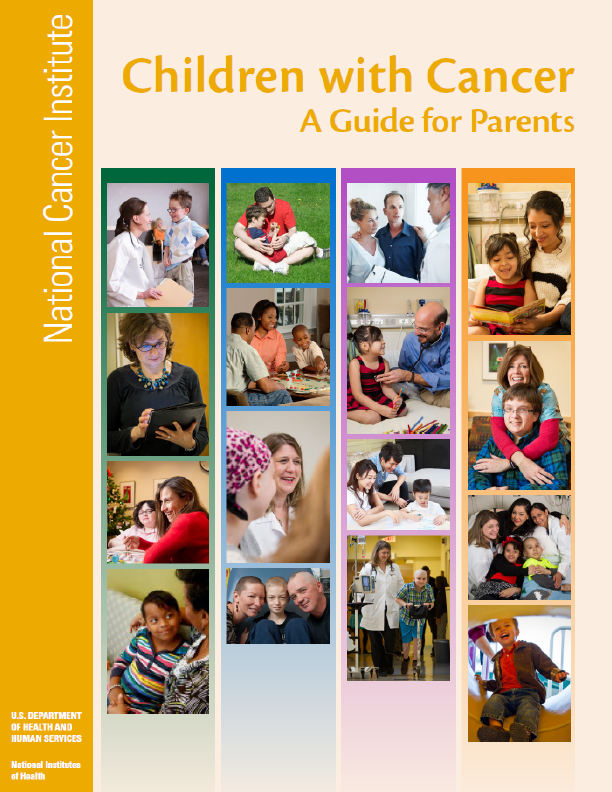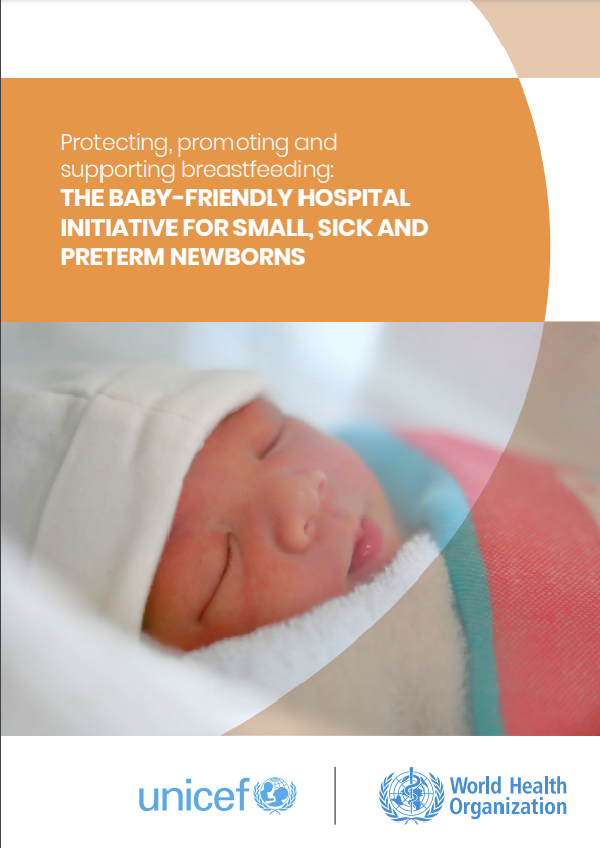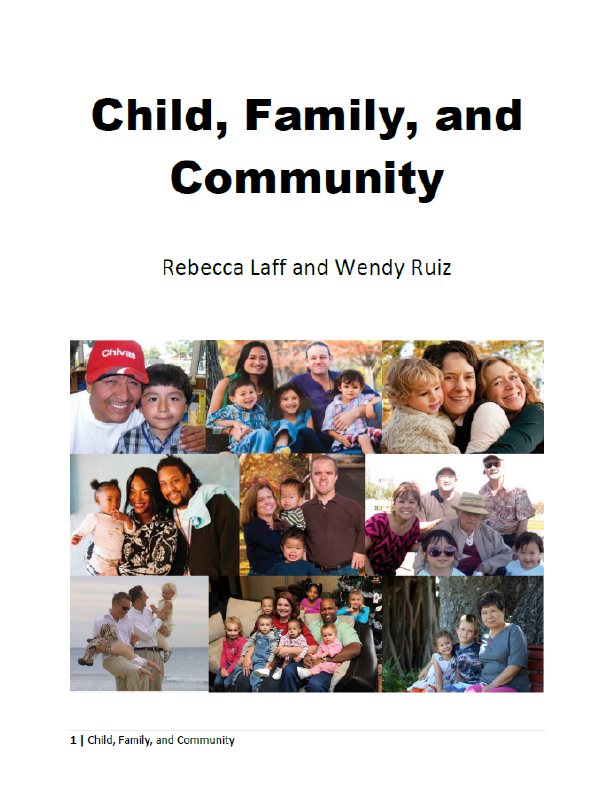Improving early childhood development
Enabling young children to achieve their full developmental potential is a human right and an essential requisite for sustainable development. Given the critical importance of enabling children to make the best start in life, the health sector has an important role and responsibility to support nurturing care for childhood development. Many interventions for reproductive, maternal, newborn, and child health (including nutrition, mental health, and HIV prevention and care) have a direct impact on child development. Moreover, the health sector has access to families and caregivers during the early childhood period.
It is primarily the family who provides the nurturing care that children need to develop in the earliest years. Many parents and other caregivers need support to put this into practice. Therefore, the guideline contains four recommendations aimed at caregivers, health professionals, and other workers who can assist them, as well as policy-makers and other stakeholders. The recommendations relate to i) providing responsive care and activities for early learning during the first 3 years of life; ii) including responsive care and early learning as part of interventions for optimal nutrition of infants and young children, and iii) integrating psychosocial interventions to support maternal mental health into early childhood health and development services.
Until now, WHO has not had guidelines specifically on improving early childhood development (ECD). Existing WHO guidelines related to neonatal care; infant and young child nutrition; environmental health; prevention and treatment of childhood illnesses; violence and injury prevention; mental health; prevention of noncommunicable diseases; and support for children with developmental difficulties or disabilities refer to the importance of respective interventions for ECD. However, they do not address ECD-specific interventions such as those related to responsive caregiving and early learning.
PURPOSE OF THE GUIDELINE
This guideline provides global, evidence-informed recommendations on improving ECD. The objective is to identify ECD-specific interventions and feasible approaches that are effective in improving developmental outcomes in children.
The recommendations in this guideline are intended for a wide audience, including policy-makers, development agencies and implementing partners, district and sub-national health managers, health workers and nongovernmental organizations.
GUIDELINE DEVELOPMENT METHODOLOGY
WHO developed these recommendations using the procedures outlined in the WHO handbook for guideline development (WHO, 2014a). The steps in this process include (i) identification of key questions and outcomes; (ii) retrieval of the evidence; (iii) assessment and synthesis of the evidence; (iv) formulation of recommendations, including research priorities; and planning for (v) dissemination; (vi) implementation, equity and ethical considerations; and (vii) impact evaluation and updating of the guideline. The Grading of Recommendations Assessment, Development, and Evaluation (GRADE)1 methodology was followed to prepare evidence profiles related to preselected topics, based on up-to-date systematic reviews.
The scoping of the guideline and the prioritization of the outcomes were carried out by the GDG in September 2017. The development and finalization of the evidence-informed recommendations were conducted by the GDG, initially in a meeting held in Geneva, Switzerland, 1 – 3 May 2018, and subsequently in a virtual meeting in September 2018.
